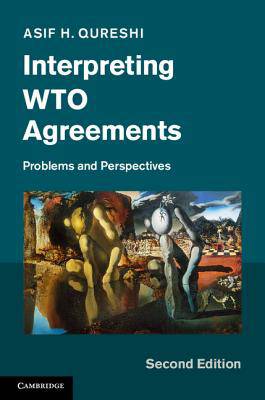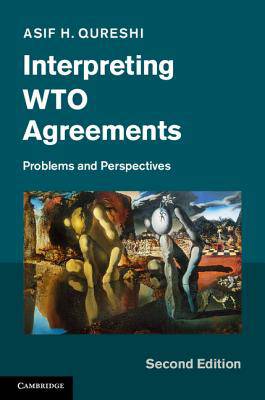
Bedankt voor het vertrouwen het afgelopen jaar! Om jou te bedanken bieden we GRATIS verzending (in België) aan op alles gedurende de hele maand januari.
- Afhalen na 1 uur in een winkel met voorraad
- In januari gratis thuislevering in België
- Ruim aanbod met 7 miljoen producten
Bedankt voor het vertrouwen het afgelopen jaar! Om jou te bedanken bieden we GRATIS verzending (in België) aan op alles gedurende de hele maand januari.
- Afhalen na 1 uur in een winkel met voorraad
- In januari gratis thuislevering in België
- Ruim aanbod met 7 miljoen producten
Zoeken
€ 164,45
+ 328 punten
Uitvoering
Omschrijving
The case law of the World Trade Organization is extensive, now running into some three hundred decided cases and thousands of pages. The interpretative process involved in this jurisprudence constitutes a form of legislative activity, and is therefore of great significance not only to the parties to disputes, but to the membership of the WTO. Qureshi identifies some of the underlying problems of interpreting WTO agreements, and examines the conditions for the interpretation of these agreements. Since the first edition of this book, the case law has grown, and the interpretation evolved further. This second edition addresses these developments and engages in the contemporary discourse on the subject. Also included is a new section on issues of interpretation relating to preferential trade agreements and the WTO. This book is an essential tool for WTO trade specialists, as well as government and judicial officers concerned with interpreting these agreements.
Specificaties
Betrokkenen
- Auteur(s):
- Uitgeverij:
Inhoud
- Aantal bladzijden:
- 476
- Taal:
- Engels
Eigenschappen
- Productcode (EAN):
- 9781107043299
- Verschijningsdatum:
- 29/01/2015
- Uitvoering:
- Hardcover
- Formaat:
- Genaaid
- Afmetingen:
- 152 mm x 229 mm
- Gewicht:
- 802 g

Alleen bij Standaard Boekhandel
+ 328 punten op je klantenkaart van Standaard Boekhandel
Beoordelingen
We publiceren alleen reviews die voldoen aan de voorwaarden voor reviews. Bekijk onze voorwaarden voor reviews.









